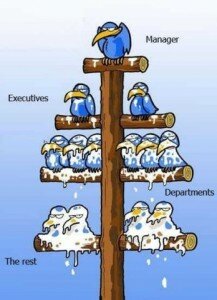I See You
Our common lexicon is often changed by movies, televison shows, advertising, and oral transmission in person or over digital, analog or snail mail networks. “Unfriend” was Oxford’s word of the year for 2009 as it had, despite its psycholinguistic negativity, “lex-appeal” been passed on by social medians around the world. “Believe it or Not,” “Come on Down,” “Help I’ve Fallen and I Can’t Get Up,” “Where’s the Beef?,””Impossible is Nothing,” and dozens of terms have planted themselves firmly in the center of conversation in scores of cultures world-wide even when users are barely able to remember origins.
Avatar has been panned by some critics as nothing more than a film with bright graphics illuminating predictable story lanes. And I have read blog posts asserting that all of its content will fade from our collective consciouness faster than it grossed its record breaking billion dollars in box office revenue. I am not so sure.
The curmudgeonly two-percenters among us, those dizzying intellectuals who can construct an intricate and convincing argument for just about anything negative, are often strangers to the ravishingly simple beauty of an oft told love story. Sure, the fates of Tristan and Isolde, Romeo and Juliette, Cyrano and Roxane and Abélard and Heloise will long be retold as adapted by lesser princes of literature and music, but Bob Dylan once said that all the songs have been sung and all stories already written. However, to put them into a contemporary idiom that speaks to modern hearts (in varied cultures) is worthy of praise, not derision. Confucius said of these critics: “Men in old times studied to improve themselves; men study today to impress others.” Hopefully we’ll emotionally wake to the fact that an Avatar line like “I see you”–meaning I sense, feel and completely connect with you– can appeal to the marvelously ordinary in everyday people and may well wind itself into more than one exchange of affection. But, I digress….
There may be other reasons for thwarting the success of Avatar in China.
I saw Avatar last week in a packed Hong Kong theater, tickets to which were were as scarce as a tamed Lenopteryx. Mainland China authorities stalled its release beyond an already delayed debut. Subsequently, I heard rumors that the Radio and Television Ministry (SARFT) had deployed a strategy similar to one used during the National Day holiday to boost domestic ticket sales for the currently running Bodyguards and Assasains, a home-grown feature flick. At that time, foreign films were nowhere to be found during the The Founding of a Republic, initially a box-office weakling, that went on to capture patriotic hearts, minds and a handsome gross. Avatar was reviewed ahead of its opening on the mainland by respected Chinese sites and generally given a bad grade by reviewers during the enforced break.
I am no conspiracy theorist – I look bad in aluminum hats – but, I cannot help but see, even in potentially false rumors regarding Avatar, evidence of a greater problem in China. During the last year China slowly and systematically re-lowered the Bamboo Curtain and took a look backward for guidance about its collective future. From karaoke bars to social networks the ability to electronically connect and “see” beyond China’s borders has been progressively restricted and interactions shunted toward scrutiny. With bit torrent sites ceremoniously closed to posture for the WTO and antedeluvian western IP criticisms gave dubious credence to China’s need to create more Internet restrictions to grow what Evgeny Morozov in The National calls cultural scarcity.
Morozov says, “For every Chinese blogger that the techno-utopians expect to fight their government via Twitter, there are a hundred others who feel content with the status quo.” I don’t agree. Facebook usage fell from 1 million users to 14,000 after it was blocked following the Uruqimi riots, but it wasn’t ennui that caused it, rather China’s Internet landlords upped the rent and effective proxy clients are not in the average netizen’s budget. A huge number of people are mad as hell, but will have to wait a little longer to not take it anymore. They “see” the forces at work…. The culturally hungry find new ways around the existing virtual blockades and the ongoing freedom fail.
A spot-on request by the WTO is that China allow more western entertainment into the country. But, they need to embrace a better model for distribution like Creative Commons along with reasonably affordable properties from which lawyer run entertainment companies expect to profit: DVDs sans extras, China specific releases, and more ad supported online availability would be a good start…..
Morozov is wrong when he asserts that “Citizens of modern authoritarian states face a choice between hedonism with stable prosperity (their status quo) and hedonism with unstable prosperity – the hedonism that may follow a tumultuous transition to democracy.” People cannot object with voices without being taught a vocabulary with which they can dissent. Moreover, it is naive to think that they will defend what they have never been allowed to see….
American Professor in China,Animation,China films,china internet,Intercultural Issues,中国



